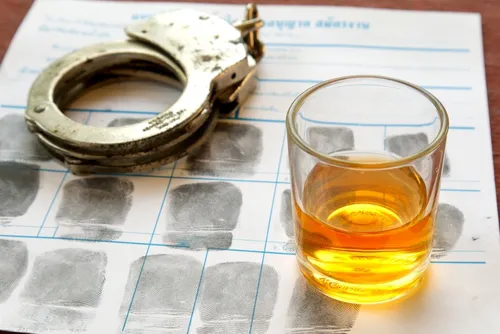Summer is here, and more people are starting to enjoy boating with friends and family. As the popularity of this recreational activity grows, it is critical to keep informed of the possible hazards of boating in order to avoid harm and injury to yourself and others.
This article will look at one potential hazard: boating while intoxicated (or BWI). The state of North Carolina places a high value on boating safety and has enacted tough rules addressing boating while intoxicated. If you are charged with boating while intoxicated, our Asheville BUI lawyers can help.
Statistics on Boating While Intoxicated
The United States Coast Guard (USCG) states that Boating Under the Influence (BUI) of alcohol or drugs currently accounts for roughly 20% of boating fatalities. As a result, states have been more stringent in enforcing laws against this type of high-risk behavior. Boaters who operate a recreational vessel with a blood alcohol concentration of.08 percent or greater will have their excursion canceled, and their boat may be seized. Possible penalties include arrest, fines, loss of boating privileges, and other penalties.
The United States Coast Guard enforces a federal BUI rule that applies to all different kinds of boats, ranging from canoes and rowboats to the largest ships, and encompasses both foreign vessels operating in U.S. waterways and U.S. vessels operating on the high seas.
In-depth research undertaken by the United States Coast Guard indicated that almost 30,000 injury-causing watercraft incidents went unreported over 365 days. In the event that you were involved in a boating accident caused by alcohol contact us today for legal advice.
North Carolina and BUI Penalties
It is illegal in North Carolina to operate a sailboat while under the influence of alcohol or other substances. Officers of fish and wildlife are trained to conduct sobriety checks as well as chemical tests to detect whether or not an operator is intoxicated.
The majority of BUIs in North Carolina are classified as class 2 misdemeanors. The offender’s criminal history determines a court’s ability to impose punishment. In general, North Carolina BUI offenders face fines ranging from $250 to $1,000 and up to 60 days in jail. BUI offenders are frequently sentenced to probation, either monitored or unsupervised and must pay a fee.
It is not only illegal to drink while conducting a boat, but it is also dangerous. The Recreational Boating Statistics, a yearly report published by the U.S. According to the Coast Guard, a drunken boat operator or passenger is more dangerous. If you are out on the water with a higher blood alcohol percentage than the legal limit, you are substantially more likely to be involved in a disaster.
Sheyenne’s Law in North Carolina
In June 2016, North Carolina passed “Sheyenne’s Law.” The new law strengthens the penalties for BUI violations containing specific aggravating conditions. The increased penalties are as follows:
Serious Injury by Impaired Boating
A BUI offender who causes “severe injury” to another person may be charged with a Class F felony, punishable by ten to 41 months in prison.
Aggravated Serious Injury by Impaired Boating
A BUI offender who causes substantial injury to another person and has a BUI conviction within the last seven years can be charged with a Class E felony, which carries a jail sentence of 15 to 63 months.
Death Caused By BUI
A BUI offender who causes death to another person can be charged with a Class D felony, which carries a sentence of 38 to 160 months in prison.
Aggravated Death Caused by Impaired Boating
A BUI offender who causes death to another person and has a BUI conviction within the last seven years can be charged with an aggravated class D felony, which carries a prison sentence of between 64 and 160 months.
Repeat Offender Death by Impaired Boating
A BUI offender who causes another person’s death and has a prior conviction for death by impaired boating or aggravated death through a BUI can be charged with a Class B2 felony, which carries a sentence of 94 to 393 months in prison.
In addition to imprisonment, a judge may impose a fine for any BUI classes, including bodily harm or death.
Obtaining Legal Counsel and Representation
Contact an experienced BUI attorney if you’ve been arrested or charged with boating under the influence in North Carolina. Every case is different. Our skilled BUI lawyers will be able to explain how North Carolina BUI law applies to your case and help you in making the best decision legally.




